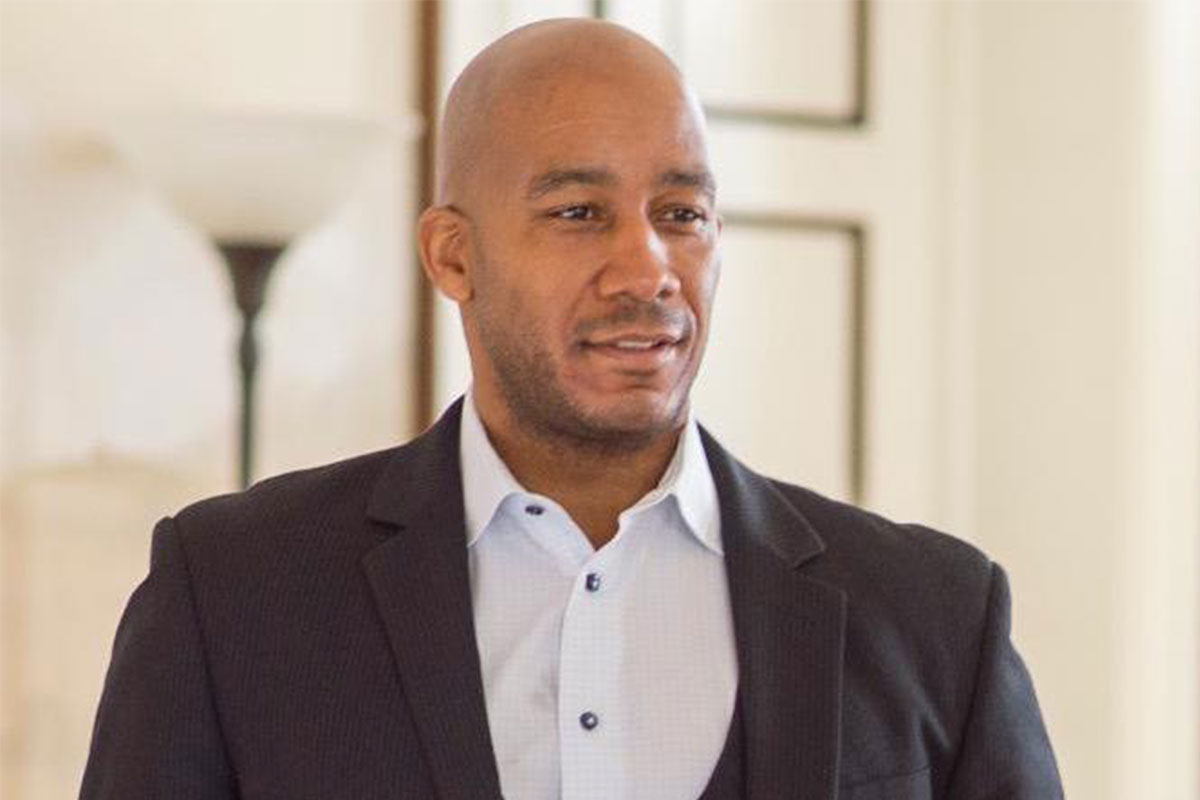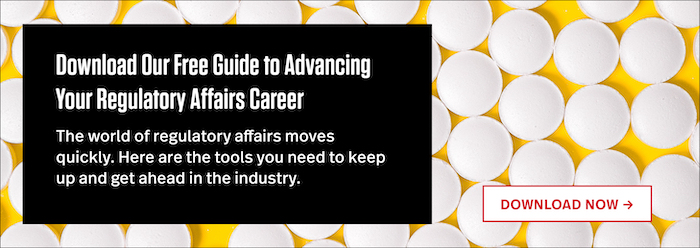“I started out in sports,” is how Keenan Davis begins to explain his unlikely journey from his dream of playing football at Louisiana State University (LSU) to becoming a faculty member in the Northeastern Master of Science in Regulatory Affairs and Master of Science in Applied Nutrition programs. Both programs are unique offerings at Northeastern, combining subjects in the life sciences, agricultural planning, food science, nutrition, law, economics, international relations, and regulatory policy.
When an injury prevented Davis from continuing with football, he decided to learn the business of sports instead, and worked in LSU’s athletic department. A post-college internship in public relations for the Chicago Bulls gave way in 2001 to a full-time position with the National Football League’s (NFL) New York office. Two promotions later, Davis found himself, improbably, traveling between Hamburg, Dusseldorf, Cologne, Frankfurt, and Amsterdam, promoting the NFL’s effort to create a global market for the game.
In 2007, NFL owners decided that European teams were no longer worth the investment, and Davis was tapped to become commissioner of the All-American Football League, a new social enterprise based in Atlanta, that focused on recruiting athletes who had college degrees. At 30, he launched the league, overseeing offices in seven locations and several hundred employees.
“Professionally, I skipped several steps at one time,” Davis says.
But the new league was unable to withstand the recession and Davis, still living in Atlanta, went into “startup mode,” he says, reinventing himself as an agent for baseball and football players. It was during that time he met his wife, a bariatric surgeon. Four months later, after deciding she was “the one,” he picked up and followed her to Denver, Colorado, where she had just accepted a full-time position.
From Managing Teams to Starting a New College
Newly transplanted and without a job, Davis decided to leverage his sports-management knowledge and enroll in graduate school at Regis University. While studying for a master’s degree in organizational leadership, he saw a Craigslist ad for an admissions counselor position for MyCollege Foundation, a new online college that had received funding from the Bill & Melinda Gates Foundation. Davis “skipped” steps again by convincing the upstart college that his leadership skills were transferable and that a position on the leadership team would be beneficial to both parties. He was hired to be the vice president of business development, and thus began a new career in education.
The organization’s mission was to provide a free education for anyone who qualified for a Pell Grant, enabling low-income students to attend college without taking out loans. Davis helped to build the school for three years until it was acquired by Mount Saint Mary’s University in Los Angeles. His experience in higher education whet his appetite to continue his own education. While working full-time for MyCollege, he was accepted into Northeastern’s Doctor of Law and Policy program.
He hadn’t planned to enter academia as a teacher, but says he “saw the degree as a tool to help me gain a deeper understanding of business law and social issues.”
Yet that tool, combined with his professional experience, was a powerful launching pad into yet a new career chapter for Davis: teaching corporate social responsibility and ethics.
So, where does food come in? Once again, Davis leapfrogged. And this time, a classmate, Darin Detwiler—a food-safety expert, director of Northeastern’s Regulatory Affairs of Food and Food Industries program, and newly appointed Assistant Dean of Graduate and Academic Affairs—had shifted his views.
“I learned so much about food because that’s all Darin talked about in class,” Davis jokes. In reality, Detwiler’s observations brought Davis back to what he had observed growing up in an urban, economically challenged area in Hot Springs, Arkansas, where liquor and drugs were more easily obtained than fresh fruits and vegetables.
“I was always interested in the quality of food, because that is something that people without money don’t have access to,” he says. “More importantly, this program offered me a way to explore the ethical component that’s embedded in decision-making in the food industry. You don’t have Whole Foods or Trader Joe’s in the ‘hood. You have White Castle and churches.”
Since he joined Northeastern in 2016 as a faculty member, Davis has taught “Social and Economic Aspects of Food,” “Food and Society,” and “Introduction to Regulatory Affairs of Food and Food Industries”—helping students connect the theoretical and practical pieces of food regulation. He specializes in integrating qualitative and quantitative social research, social policy, public law, public policy, state politics and policy, corporate social responsibility, and ethics.
Most of his students are people working in the industry who seek to be more effective in their careers.
“I teach business ethics and corporate social responsibility to people who can actually change the dynamics of how food is offered in urban areas and make it more ethical,” he says.
A Laboratory of Democracy
The students in his class are very inquisitive and have a lot of ideas, he says, and many have worked hard to get ahead in their careers. But often, they haven’t had the opportunity to put into place their ideas about corporate social responsibility. “Our class becomes a laboratory of democracy and free thinking, regardless of individuals’ views, for these leaders to address things they’ve always wanted to discuss about industry,” Davis says.
His students have included high-level executives involved with regulatory affairs for major food brands, as well as staff of the U.S. Food and Drug Administration.
In designing his courses, he draws on his own experiences taking online courses. For example, he makes ample use of prerecorded video lectures, and, using a Blackboard program, brings the class together in real time at least once in a six-week course, and multiple times during a 12-week course.
Each student conducts a case study on an ethical dilemma in the food industry and submits it for peer review. One student explored the use of unregulated and vague claims, such as “healthy” in food labeling. Another looked at the need to sustainably meet the food demands of a growing population. “They’re gaining the confidence to take these ideas back to their industry and make the change that every consumer desires,” Davis says.
Whether discussing starvation, obesity, or mass food production, students talk about the tools they would use to solve the problem. For Davis, teaching these students offers him an insider’s view of how ethics and corporate responsibility are seen by industry leaders.
And when he’s not in his online classroom, Davis continues to pursue his entrepreneurial passions, consulting and developing real estate all over the country and parenting a 16-month-old.
While still a true football fan at heart, he has truly found his calling in higher education.
“Teaching is my passion and learning is my oxygen,” he says. “I realize that I may not change the world, but I’m certain I will teach someone who will.”







Related Articles
4 Ways to Stay Competitive in Regulatory Affairs
Emerging Trends in Regulatory Affairs in 2022
How to Stay Updated on Regulatory Changes